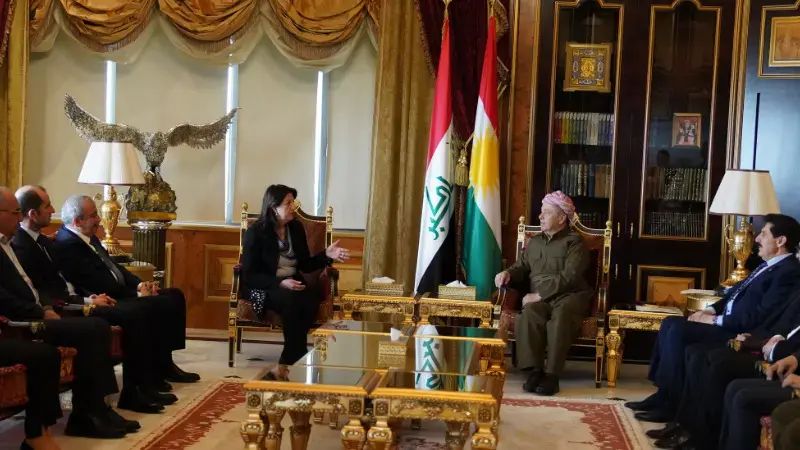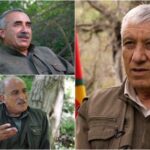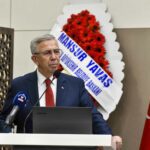Erbil, Iraq – A delegation from Turkey’s pro-Kurdish People’s Equality and Democracy Party (DEM) met with Masoud Barzani, the leader of Iraq’s Kurdistan region, on Sunday, delivering a message from Abdullah Ocalan, the imprisoned founder of the Kurdistan Workers’ Party (PKK). The visit comes amid renewed discussions of a long-stalled peace process between Turkey and the PKK.
The DEM delegation, led by senior lawmakers, visited Ocalan twice over the past six weeks before holding talks with Turkey’s major parliamentary factions. While no official timeline has been set, Kurdish politicians expect Ocalan to issue a public statement on the matter in the coming weeks.
In a statement, Barzani’s office confirmed that the Turkish delegation conveyed a message from Ocalan and provided updates on their discussions regarding Turkey’s internal political landscape and the future of peace negotiations. Barzani reaffirmed his commitment to supporting the process, stating that he is “fully prepared to assist and support the peace process in Turkey.” He also emphasized that “peace is the only right path to a solution” and called on all sides to intensify their efforts toward reconciliation.
Barzani, who leads the Kurdistan Democratic Party (KDP), plays a key role in regional Kurdish affairs. The nearly two-hour meeting saw him offering strategic insights on how to advance negotiations.
As part of their three-day visit to Iraq’s Kurdistan region, the DEM delegation is also set to meet with Kurdistan Regional President Nechirvan Barzani, Deputy Prime Minister Qubad Talabani, and his brother Bafel Talabani, leader of the Patriotic Union of Kurdistan (PUK).
The PKK, which has waged a decades-long insurgency against the Turkish state, has maintained positions in Iraq’s Kurdistan region, where Turkey also operates military bases.
With peace talks frozen for nearly a decade, a surprising development emerged in October when Turkey’s far-right Nationalist Movement Party (MHP), a key ally of President Recep Tayyip Erdogan, suggested that Ocalan could be considered for parole if the PKK disarms and renounces violence. Erdogan’s backing of the proposal has fueled speculation about a potential shift in Turkey’s approach to resolving the conflict, which has claimed tens of thousands of lives.
While optimism surrounds the renewed push for peace, tensions persist. The Turkish government continues to crack down on Kurdish political figures and activists, with recent arrests and the removal of elected Kurdish mayors. Meanwhile, in Syria, clashes between Turkish-backed forces and Kurdish militias further complicate the regional landscape.
As Ocalan’s anticipated statement draws closer, both Turkish and Kurdish political actors are closely watching the next developments, which could shape the future of the decades-long conflict.



